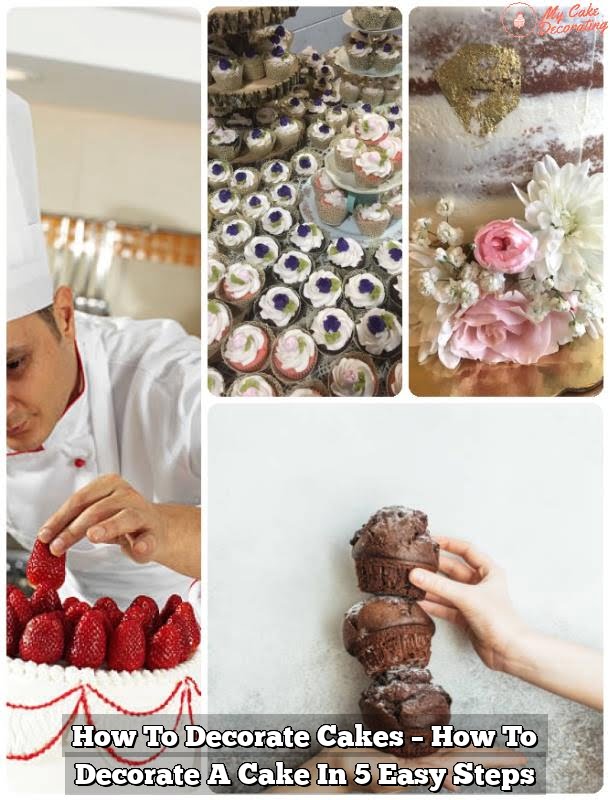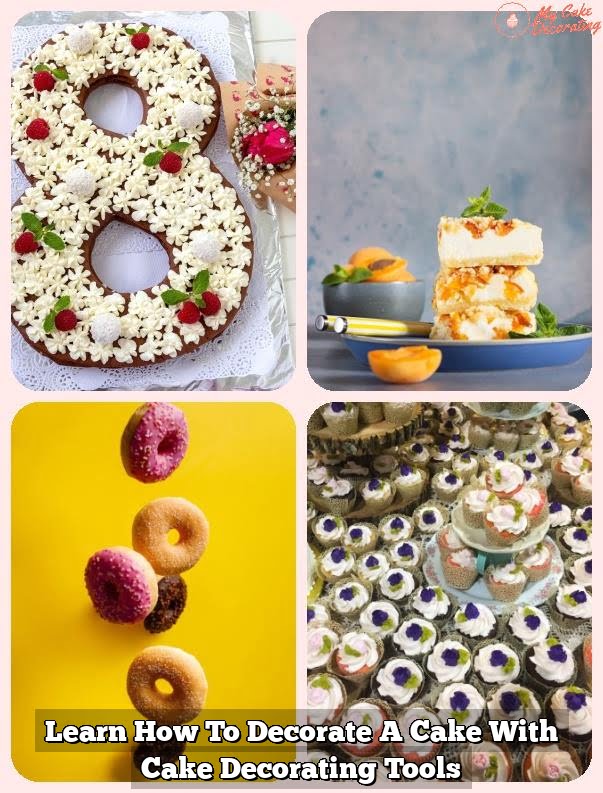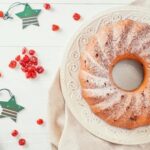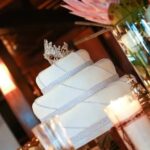Have you ever baked a delicious cake and then wondered how to make it look as beautiful as it tastes? In this article, we will explore the art of cake decorating and provide you with the essential knowledge and skills to create stunning confections. From basic techniques to advanced tips, we will guide you through the process of adorning your cakes with professional-looking decorations.
Whether you are a beginner or an experienced baker, knowing how to decorate your cake is an invaluable skill that can take your creations to the next level. With the right tools, materials, and techniques, you can transform a simple cake into a work of art that is sure to impress your friends and family.
Throughout this article, we will cover everything from selecting the right cake for decorating to preparing it for decoration, as well as basic and advanced decorating techniques. We will also provide creative ideas for decorating your cake and offer tips for achieving professional-looking decorations. By the end of this article, you will have the knowledge and confidence to create stunning cakes that not only taste amazing but also look absolutely beautiful.
Essential Tools and Materials for Cake Decorating
When it comes to cake decorating, having the right tools and materials is essential to achieving professional-looking results. One of the most important tools for any cake decorator is a good quality offset spatula, which is used for spreading frosting and smoothing out the surface of the cake. Another essential tool is a piping bag and a set of different tips, which are used for creating intricate designs and patterns on the cake.
In addition to these basic tools, there are many other materials that are necessary for cake decorating. For example, a turntable is incredibly useful for easily rotating the cake while you decorate it. A bench scraper can help to create smooth sides on your frosted cake. And let’s not forget about food coloring gels, which are used to add vibrant colors to your frosting.
Another important aspect of cake decorating is having the right kind of cake stand or board to display your finished creation. There are many different options available, from simple cardboard boards to elaborate decorative stands. The choice will depend on the occasion and the design of your cake.
Finally, it’s important to have a good quality pastry brush for applying simple syrups or glazes to your cakes before frosting them. This will help keep your cakes moist and add an extra layer of flavor.
| Tool/Material | Purpose |
|---|---|
| Offset Spatula | Spreading frosting and smoothing out the surface of the cake |
| Piping bag and tips | Creating intricate designs and patterns on the cake |
| Turntable | Easily rotating the cake while decorating |
Selecting the Right Cake for Decorating
When it comes to cake decorating, selecting the right type of cake is essential to ensure that your decoration efforts will not go to waste. Different types of cakes have different textures, flavors, and densities, which can affect how well they hold up to decorations. Here are some tips for selecting the right cake for decorating:
Consider the Texture
The texture of the cake is an important factor to consider when choosing a cake for decorating. A denser and more stable cake, such as a pound cake or a sponge cake, is better suited for elaborate decorations and fondant coverings. Lighter and fluffier cakes, like chiffon or angel food cakes, are best suited for simpler decorations such as whipped cream frosting or glazes.
Match Flavors With Decorations
Consider the flavors of the cake when deciding on decorations. For example, a rich chocolate cake would pair well with decadent ganache or chocolate shavings, while a light vanilla or lemon cake would complement fruit fillings or citrus-flavored frostings.
Consider the Shape
The shape of the cake is also an important factor in selecting the right one for decorating. Some designs may work better on round cakes compared to square cakes, while tiered or stacked cakes offer more space for intricate designs. Consider the final presentation you have in mind when choosing the shape of your cake.
By considering these factors when selecting your cake, you can ensure that your decorating efforts will be on a solid foundation, leading to a stunning and delicious finished product.
Preparing Your Cake for Decoration
When it comes to preparing your cake for decoration, there are a few key steps you’ll want to follow to ensure your decorating process goes smoothly and produces stunning results. Here are some essential tips and techniques for getting your cake ready for decoration:
1. Leveling and Torting: Before you can start decorating, it’s important to ensure that your cake is level and even. Use a long serrated knife or a cake leveler to carefully trim off the top of the cake to create an even surface. If you have multiple layers, torting the cake by slicing it horizontally into even layers will provide a sturdy and visually appealing base for your decorations.
2. Crumb Coating: A crumb coat is a thin layer of frosting that is applied to the entire cake to seal in any loose crumbs before adding the final layer of frosting or decorations. This step helps create a smooth canvas for decorating and prevents any unsightly crumbs from ruining the finished look of your cake.
3. Chill Your Cake: Once you’ve applied the crumb coat, it’s important to chill the cake in the refrigerator for at least 30 minutes before proceeding with additional decorating steps. Chilling the cake helps set the frosting and makes it easier to work with as you add more intricate decorations.
By following these steps and taking your time to properly prepare your cake, you’ll set yourself up for success when it comes time to add those beautiful finishing touches that will truly make your creation stand out.
Basic Cake Decorating Techniques
Once you have selected the right cake for decorating and prepared it, you can start with some basic cake decorating techniques. One of the most common and easiest techniques is using buttercream frosting to create simple designs such as rosettes, stars, or swirls using a piping bag and various tips. You can also try using fondant to cover your cake and create smooth surfaces for more intricate decorations.
Another basic technique is using edible food coloring to add color to your frosting or fondant. You can also use edible glitter, sprinkles, or other edible decorations to add texture and visual interest to your cake. Don’t forget the basics of leveling your cakes and applying a crumb coat before adding your final layer of frosting.
For those just starting out with cake decorating, practicing these basic techniques will help you build a solid foundation before moving on to more advanced methods. With practice and patience, you can achieve beautifully decorated cakes that will impress your friends and family.
Advanced Cake Decorating Techniques
Mastering Piping
One of the most important advanced cake decorating techniques is mastering piping. Using a piping bag and different tips, you can create intricate designs, flowers, and borders on your cake. Practice with different icing consistencies and pressure control to achieve professional-looking results. The key to mastering piping is patience and practice.
Sculpting and Carving
Sculpting and carving cakes into various shapes or designs is another advanced technique that requires skill and precision. Whether it’s creating a 3D object or carving smooth, rounded edges, sculpting cakes adds a unique touch to your decorations. This technique often involves using a serrated knife or special cake carving tools for more intricate designs.
Using Fondant and Gum Paste
Working with fondant and gum paste opens up endless possibilities for advanced cake decorating. From creating lifelike flowers to covering the entire cake with a smooth, flawless finish, mastering fondant and gum paste techniques takes time and dedication. Techniques such as embossing, ruffling, draping, and creating 3D figures are all part of the advanced skillset when working with these materials.
As you advance in cake decorating, experimenting with new techniques will not only enhance your skills but also add creativity to your designs. Remember that practice makes perfect in mastering advanced cake decorating techniques.
Tips for Achieving Professional-Looking Decorations
Decorating a cake like a professional doesn’t have to be as difficult as it may seem. With the right techniques and tools, you can achieve stunning and professional-looking decorations. Here are some tips to help you elevate your cake decorating skills:
- Use a turntable: A turntable makes it easier to frost and decorate your cake from all angles, allowing for smoother and more even decoration.
- Invest in quality piping bags and tips: Using high-quality piping bags and tips can make a significant difference in the outcome of your decorations. They allow for more precise and controlled piping, resulting in cleaner and professional-looking designs.
- Practice consistency: Consistency is key when it comes to achieving professional-looking decorations. Whether it’s the thickness of the frosting or the size of your piped designs, practicing uniformity will give your cake a polished look.
In addition to the tools and techniques mentioned above, it’s also important to pay attention to detail when decorating your cake. Achieving professional-looking decorations often comes down to the little details that can make a big impact on the overall appearance:
- Smooth out any imperfections: Take the time to smooth out any imperfections in your frosting before adding decorations. A smooth base will provide a clean canvas for your designs.
- Pay attention to symmetry: Whether you’re piping flowers or adding embellishments, strive for symmetry in your designs. This will create a more polished and professional finish.
- Add finishing touches: Don’t forget to add those extra finishing touches that can take your cake from homemade to professional. Edible glitter, decorative pearls, or fresh flowers can add an elegant touch to your cake.
By applying these tips and paying attention to detail, you can achieve professional-looking decorations that will impress your guests and elevate the overall presentation of your cake. Practice makes perfect, so don’t be afraid to experiment with different techniques until you find what works best for you.
Creative Ideas for Decorating Your Cake
When it comes to cake decorating, the possibilities are endless. Once you have mastered the basic and advanced techniques, it’s time to let your creativity shine. There are numerous creative ideas for decorating your cake that can take your dessert to the next level.
One popular option is to use edible flowers and herbs to add a natural and rustic touch to your cake. Flowers like pansies, roses, and lavender can be used as stunning decorations that not only add color but also flavor to your cake.
Another creative idea is using fresh fruits as a decoration. Berries, kiwi, mango, and other colorful fruits can be used to create beautiful patterns and designs on top of your cake. You can also opt for a naked cake style, where the sides of the cake are left exposed or lightly frosted for a more organic look. This style allows you to showcase the layers and fillings inside the cake.
If you want to add a personal touch to your decoration, consider using stencils or creating custom patterns with chocolate or colored icing. Stencils come in various designs and shapes that can help you achieve professional-looking decorations with minimal effort.
Personalized messages or monograms can also be added using piping bags and different tips for an extra special touch. As you explore these creative ideas, remember that practice makes perfect – don’t be afraid to experiment until you find the perfect decoration for your cake.
Common Mistakes to Avoid in Cake Decorating
One of the key aspects of successful cake decorating is being aware of common mistakes to avoid. By understanding and recognizing these pitfalls, you can ensure that your cake decorating endeavors are as smooth and flawless as possible.
One mistake to avoid in cake decorating is not properly preparing your cake for decoration. This may include not allowing the cake to fully cool before beginning the decoration process, resulting in a melted or runny frosting. It’s also important to level your cake layers before stacking them to ensure a stable and even surface for decorating.
Another common mistake is using the wrong type of frosting for your cake. Different types of frostings have different consistencies and are better suited for specific decorating techniques. For example, using a whipped cream frosting for intricate piping work may result in a messy and runny design.
Additionally, overlooking the importance of proper storage and handling can lead to disappointing results in cake decorating. If a decorated cake is not stored in a cool environment or if it is mishandled during transportation, the decorations may become smudged, smeared, or otherwise ruined.
By being mindful of these common mistakes and taking proactive steps to avoid them, you can elevate your cake decorating skills and achieve professional-looking results every time.
Conclusion and Final Tips for Successful Cake Decorating
In conclusion, decorating a cake can be a fun and rewarding experience, especially when you have the right tools, materials, and knowledge. Whether you are a beginner or have some experience in cake decorating, it is essential to start with the basics and gradually work your way up to more advanced techniques. Remember that practice makes perfect, so don’t be discouraged if your first few attempts are not flawless.
To achieve professional-looking decorations, make sure to properly prepare your cake for decoration, use the right types of frosting and icing, and pay attention to details. It’s also important to have patience and take your time when decorating, as rushing can lead to mistakes. Additionally, don’t be afraid to get creative with your designs and try out new ideas – this is what will make your cakes unique and memorable.
Finally, always keep in mind that mistakes are part of the learning process. Even experienced bakers make errors from time to time. Instead of getting frustrated by them, use them as learning opportunities and motivators for improvement. With practice and perseverance, you’ll soon be able to create beautiful and professional-looking decorated cakes that will impress everyone at any event. Happy decorating.
Frequently Asked Questions
How to Decorate a Cake for Beginners?
Decorating a cake as a beginner can be an enjoyable and rewarding experience. Start by choosing a simple design or theme for your cake, such as using colorful icing or basic piping techniques.
It’s important to have the right tools, like icing spatulas, piping bags, and tips, to make the process easier. Take your time and practice different techniques to find what works best for you.
What Can I Decorate My Cake With?
There are numerous options for decorating a cake, depending on your skill level and the look you want to achieve. Common decorations include fresh fruit, edible flowers, chocolate shavings, sprinkles, and fondant shapes. You can also use different types of frosting, like buttercream or royal icing, to add texture and visual interest to your cake.
What Are the 3 Tips for Preparing to Decorate a Cake?
Before diving into cake decorating, it’s essential to prepare properly. Firstly, make sure your cake is completely cooled before starting the decorating process to prevent the frosting from melting or becoming too soft.
Secondly, gather all the necessary tools and ingredients in one place before you begin – this will save time and make the process smoother. Lastly but importantly, take some time to research and watch tutorials on basic decorating techniques so that you have an idea of what to expect before you start working on your own cake.

Welcome to my blog about home and family. This blog is a place where I will share my thoughts, ideas, and experiences related to these important topics. I am a stay-at-home mom with two young children. I hope you enjoy reading it! and may find some helpful tips and ideas that will make your home and family life even better!





